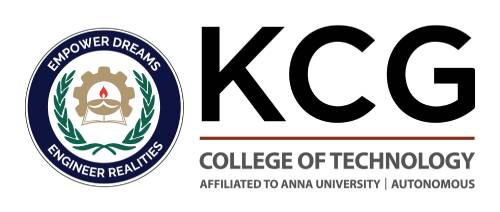The 5 Step Placement Guide: What Do Recruiters Look For?
As the demand for engineering talent continues to rise, the engineering industry in India is set to expand rapidly in the coming years. According to a report by the National Skill Development Corporation (NSDC), the Indian engineering sector is expected to grow at a compound annual growth rate (CAGR) of 6.5% between 2021 and 2025. This growth is likely to result in increased demand for skilled engineering professionals across various industries, including IT, manufacturing, construction, and renewable energy. The Indian government’s recent initiatives such as “Make in India” and “Atmanirbhar Bharat” are also expected to boost the manufacturing sector, which will result in a higher demand for engineering talent. Additionally, the exponential rise of emerging technologies such as artificial intelligence, machine learning, and automation is expected to create a multitude of new job opportunities for engineering graduates.
Recruiters play a critical role in helping companies find the right talent for their needs. As an engineering student preparing to enter the workforce, it is important to understand what recruiters look for in potential candidates.
1.Educational Qualification:
Recruiters seek candidates with the relevant educational qualifications required for the job from a reputed technical institute. Candidates with a degree from a top engineering college in India possess a distinct advantage in the interview process as these institutes offer a wide range of career development resources and opportunities, including internships, workshops, and industry visits.
2.Technical Expertise:
Having technical expertise is crucial for a candidate during a job interview in a technical field such as engineering. Employers look for candidates who not only have the necessary educational qualifications but also possess the technical skills required to perform the job duties. During the interview, the employer may ask technical questions to assess the candidate’s technical knowledge and problem-solving abilities. For example, IT recruiters want IT engineering or computer engineering candidates with in-depth knowledge and hands-on experience in programming languages, software development, database management, and other technical skills required for the role.
3.Industry Knowledge & Adaptability:
With technology constantly evolving, engineering recruiters seek candidates who are adaptable and willing to learn new skills and technologies to keep up with the changing demands of the industry. Having knowledge of emerging technologies demonstrates that the candidate is up-to-date with industry trends and is proactive in keeping their skills relevant. It also shows that the candidate can quickly learn and integrate new technologies and processes into their work.
4.Soft Skills & Critical Thinking:
Critical thinking and soft skills are extremely important during an interview process. While technical skills are important for performing specific job functions, critical thinking and soft skills are essential for success in any job role. Critical thinking allows candidates to analyze problems, evaluate options, and make sound decisions. Soft skills such as communication, teamwork, problem-solving, and adaptability enable candidates to work effectively with others, resolve conflicts, and navigate changes in the work environment. Recruiters value candidates with strong critical thinking and soft skills because they can bring new perspectives, work well in a team, and adapt to changing situations.
5.Relevant Experience:
Relevant experience in a field associated with the organization can be a significant advantage during a job interview. It provides candidates with the opportunity to gain practical experience, learn new skills, and make industry connections. By participating in internship programs, attending technical workshops and competing in technical innovation competitions, candidates can apply theoretical knowledge gained in the classroom to real-world situations, develop problem-solving skills, and gain a deeper understanding of the industry. It also demonstrates a candidate’s commitment and interest in the field, which can make them stand out from other applicants. During a job interview, candidates with relevant industry experience can speak about their accomplishments, the challenges they faced, and the skills they have developed in the process.
KCG College of Technology has a distinguished track record of producing accomplished graduates who are highly sought after by top corporates, with a consistent placement of 95% year on year. Our students are provided highly focused hands-on industry training, access to exclusive internships with industry leaders and rigorous pre-interview preparation to enable them to excel in the interview process. Skill development is an integral part of our success story and we have established a holistic approach towards a well-rounded, world-class education. Training from external professional vendors, Industry COE partners who are market leaders in global technologies, a strong network of highly successful alumni and various corporate out reach collaborations ensure our students receive exposure and guidance in choosing the right career path. Our dedicated Placement Cell has long-standing relationships with top recruiters, ensuring our graduates are routinely placed in top companies with significant pay packages and a high degree of upward mobility, holding management positions and leading teams on exciting and path-breaking projects.








